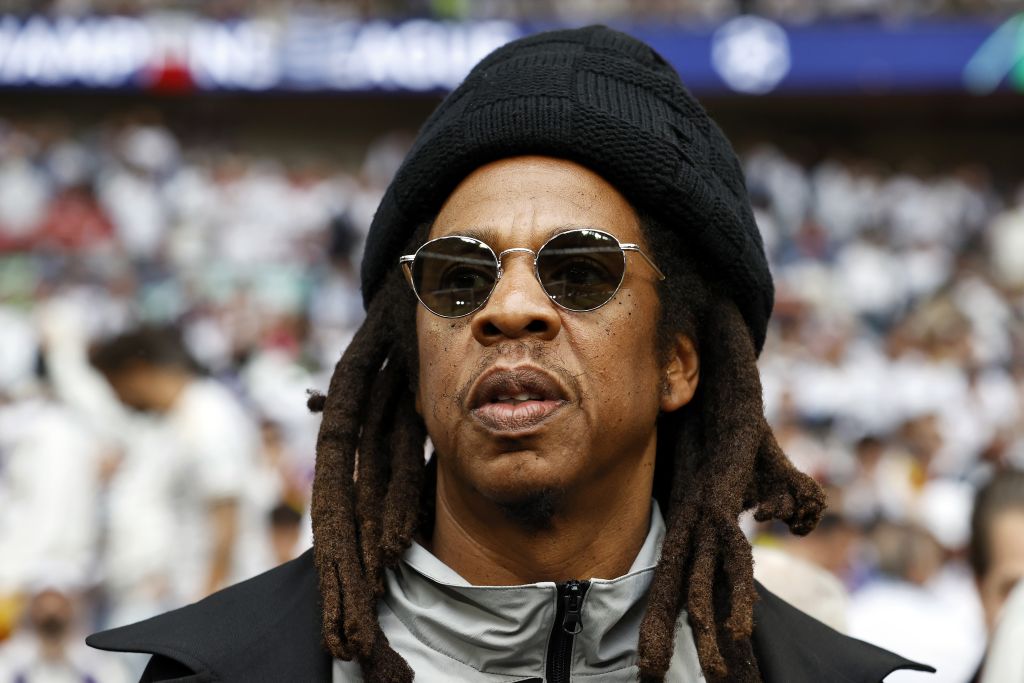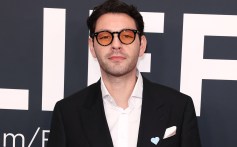Lawsuit
Page: 4
Trending on Billboard A federal judge rejected a lawsuit claiming the Rock & Roll Hall of Fame broke the law by using a copyrighted photo of Eddie Van Halen in a museum exhibit. Dismissing a case filed by rock photographer Neil Zlozower, Judge Christopher A. Boyko said the Rock Hall made legal “fair use” of […]
Trending on Billboard
A woman who has accused Garth Brooks of sexual assault is refusing to concede defeat in her fight to remain anonymous.
The allegations, which Brooks vehemently denies, were raised by the star’s former hairstylist, identified only as Jane Roe in court filings. But the country star won a ruling in September that she must use her real name as the litigation moves ahead.
Related
In a notice filed last month, Roe said she would ask a federal appeals court to reverse that ruling, saying that she was “appealing those portions of the order pertaining to her motions to maintain the confidentiality of her name and proceed using a pseudonym.”
A spokesperson for Brooks did not immediately return a request for comment on the case or the new appeal.
The legal battle kicked off last year, when Brooks filed a preemptive lawsuit under the name John Doe, claiming he was facing an “ongoing attempted extortion” by a woman falsely accusing him of sexual assault. Weeks later, Roe filed her own case in Los Angeles, accusing Brooks of assaulting her while she worked for him as a hairstylist.
Brooks has vehemently denied the allegations, saying in a statement that he had been threatened that the woman’s “lies” would be released to the public unless he wrote “a check for many millions of dollars.”
Related
Since last year, much of the case has been shrouded in mystery because the entire court docket has been kept under seal, an unusual step in any federal lawsuit. The judge overseeing the case took that step after Brooks filed case documents last fall in which he publicly disclosed the accuser’s name.
That disclosure sparked outrage from Roe’s attorney, who vowed to re-hide her name and seek penalties against Brooks: “Out of spite and to punish, he publicly named a rape victim,” said her attorney, Douglas Wigdor. “With no legal justification, Brooks outed her because he thinks the laws don’t apply to him.”
In later court filings, attorneys for Brooks pushed back on that, arguing that the accuser “already agreed to use her name” — citing earlier court filings in which her attorneys argued Brooks must use his.
In September, Judge Henry T. Wingate denied Roe’s motion to remain under the pseudonym, though his reasoning is unclear because the ruling remains under seal, like the rest of the docket. Her team then filed a motion for an interlocutory, or immediate, appeal of that ruling.
Related
Though the appellate case is underway, the accuser has not yet filed formal arguments. In a statement to Billboard, another of her attorneys, Jeanne M. Christensen, said they could not speak about the specifics of the appeal because of the judge’s sealing orders.
“The Mississippi action filed by Garth Brooks in a desperate effort to preemptively silence our client is currently under seal, and therefore, we cannot comment on the appeal,” said Christensen, a partner at Wigdor’s firm. “We continue to applaud our client’s courage in coming forward with her allegations of sexual assault against Brooks and are confident that he will be held accountable for his actions.”
Rymir Satterthwaite began a quest over a decade ago, claiming that Jay-Z impregnated his mother in the late 1990s, leading to his birth. Jay-Z has fought the case at every turn, and now, a California judge has dismissed the paternity lawsuit from Rymir Satterthwaite.
In a report from Page Six, it was revealed that Rymir Satterthwaite, 30, will not have his paternity case go any further after a judge in California dismissed the matter with prejudice on Wednesday (November 4). From this point forward, Satterthwaite can no longer file a paternity suit against Shawn Carter, professionally known as Jay-Z.
The outlet adds that Wanda Satterthwaite, the mother of Rymir, filed a civil lawsuit against Carter that did not materialize into any legal ramifications before her passing. Ms. Satterthwaite died in 2016, but her son vowed to keep the pressure up.
Rymir Satterthwaite is also a rapper, according to past report,s but it isn’t known how far his music has traveled.
There have not been any statements made by Jay-Z’s legal team.
—
Photo: Getty
Trending on Billboard
Drake is appealing after a judge dismissed his defamation lawsuit against Universal Music Group (UMG) over Kendrick Lamar’s diss track “Not Like Us” — and some legal experts think it could be a closer case than one might expect.
Related
The appeal, filed last week, will seek to revive Drake’s case, which claimed that UMG defamed him by releasing lyrics that called him a “certified pedophile.” A judge tossed the case out last month, ruling that listeners would think Lamar was just lobbing hyperbolic opinions, not hard facts.
For many casual observers, the reaction to Drake’s decision to appeal was some version of the law of holes: If find yourself in one, stop digging. After taking a reputational hit from filing a lawsuit during a rap beef, and then quickly losing that case in court, why drag it out any further?
Because, some legal experts say, a court of appeal might be more open to siding with Drake than the court of public opinion. “I think there’s actually a good argument that ‘pedophile’ wasn’t meant metaphorically here,” says Benjamin C. Zipursky, a professor at Fordham Law School and an expert in defamation law.
Much of Judge Jeannette A. Vargas‘ ruling against Drake turned on context — that Kendrick’s lyrics came amid a “war of words” in which fans had seen repeated “inflammatory insults” from each side. In that setting, and within the art form of battle rap more generally, the judge said listeners would likely view the pedophile line as just one more “hyperbolic vituperation” rather than the kind of “sober facts” that could be proven true or false.
On appeal, Drake’s lawyers are likely to argue that Vargas got lost in that context-heavy approach and missed the actual reality of the case: That even if it came during a diss track, Kendrick accused Drake of a very specific type of wrongdoing. And some experts say that might gain traction at an appeals court.
“Is that a verifiable statement? Of course it is,” Zipursky says. “As opposed to calling somebody a ‘fascist’ or a ‘sh-thead’ or claiming they don’t love their family, the statement that ‘X is a pedophile’ falls more on the verifiable, falsifiable side. And that’s clearly what Drake’s lawyers are going to push.”
Zipursky stresses that Vargas had done an “artful” job crafting her ruling, taking into account layers of legal precedent and serious concerns about a chilling effect on free expression from letting a rich celebrity sue over art. But when dealing with the almost metaphysical complexity of speech law, he says an appeals court might still see things differently.
Related
“If I were Drake’s lawyers, I would absolutely try to pull apart some of these context issues,” Zipursky says. “I’d ask why it’s fine for rap musicians to tell lies about each other’s criminality when there’s nothing in New York law that says that.”
Another way for Drake’s lawyers to frame those issues could be to argue the case was simply tossed too soon. Judge Vargas dismissed the case on a so-called motion to dismiss — meaning at the earliest possible stage of a case. Under that rule, she said that even if Drake proved all his lawsuit’s defamation allegations were factually true, he still couldn’t win the case because the law itself was against him.
For Marina V. Bogorad, a veteran entertainment litigator at Munck Wilson Mandala LLP, that ruling smacks of blanket immunity for any statement made in the context of a diss track, even an accusation of heinous conduct that would obviously be defamatory if false.
“The statement on its face accuses Drake of a serious crime,” Bogorad says. “To find that you can lace rap songs with facially libelous statements with impunity as a matter of law is quite a holding.”
Of course, none of this means Drake’s appeal is a slam dunk. Other legal experts had predicted to Billboard that the case would be dismissed for exactly the reasons later cited by Judge Vargas. And scholars versed in hip hop also came out against the case, arguing that Drake’s effort to treat rap lyrics literally was both legally faulty and potentially dangerous.
Related
But reasonable legal minds can differ on something as complicated and nuanced as free speech and defamation — and Bogorad says the appeals courts might think Judge Vargas should have waited and allowed more discovery into the facts of the case, including into the falsity of the claim or how actual listeners understood Kendrick’s lyrics.
“Whether or not someone is a ‘certified pedophile’ is certainly a fact capable of being disproved,” Bogorad says. “It remains a question for the [appeals court] whether rappers have an instant immunity from these kinds of inquiries.”
Trending on Billboard
10K Projects, the Warner-owned label founded by Elliot Grainge, has been sued for allegedly hoarding millions of dollars owed to Taz Taylor’s Internet Money Records under a joint venture.
Internet Money’s lawsuit stems from its 2019 partnership deal with 10K, which was at that point a fast-growing indie hip-hop label started by Grainge three years earlier. The 31-year-old son of Universal Music Group chairman and CEO Lucian Grainge, Elliot is now a powerful music executive in his own right as CEO of Atlantic Records.
Related
The 2019 joint venture made Grainge’s 10K the exclusive label home for talent developed by Taylor (Danny Snodgrass Jr.) through his Internet Money producer collective, including Nick Mira, JRHITMAKER and KC Supreme. The two companies were supposed to split net profits 50/50, according to the lawsuit.
“Unfortunately, the defendants, in violation of their obligations to plaintiffs, have acted in such a manner that they are the only entities who have benefited from this relationship,” reads the complaint, filed Tuesday (Nov. 4) in Los Angeles federal court.
Internet Money claims 10K has “engaged in a pattern of misconduct, indeed breaching every promise and obligation that was owed to the plaintiffs.” The crux of this alleged misconduct is a series of maneuvers by 10K that allegedly deflated Internet Money’s share of the net profits by at least $4 million.
The lawsuit says 10K has hoarded these profits by improperly cross-collateralizing accounts and overcharging Internet Money for jacked-up expenses, which are categorized as deductions under the joint venture agreement.
Related
Additionally, 10K is accused in the complaint of diluting Internet Money’s cut from the collective’s hit Gunna collaboration “Lemonade,” which peaked at No. 6 on the Billboard Hot 100 in 2020. Internet Money also claims 10K has failed to share money made from the singer iann dior and withheld publishing royalties linked to various artists.
“As a direct and proximate result of the breaches, Internet Money Records has been denied millions of dollars in net profits to which it is entitled and continues to suffer ongoing damages due to 10K’s intentional misreporting and bad-faith conduct,” writes Internet Money’s lawyer, Sarah Matz.
The lawsuit brings a slew of civil claims, including breach of contract, breach of fiduciary duty and fraudulent inducement. Internet Money is seeking monetary damages and a court order requiring Warner Music Group (WMG), which acquired a controlling stake in Grainge’s label in 2023, to provide it with 10K’s financial statements for an audit.
Reps for 10K did not immediately return a request for comment on Wednesday (Nov. 5). The label has been run under the Atlantic Records umbrella since 2024, when Grainge was named CEO of the storied WMG operation.
Trending on Billboard
Spotify is facing a class action lawsuit claiming its Discovery Mode and editorial playlists are a “modern form of payola” that allow record labels and artists to secretly pay to promote their music.
The lawsuit, filed on Wednesday (Nov. 5) in New York, alleges that Spotify’s recommendation tools are a “deceptive pay-for-play” program, but that the streamer misleads consumers into trusting that they are neutral and based on personal musical tastes.
Related
“Spotify exploits that trust by marketing itself as a platform that offers organic music recommendations — whether through its algorithmic or curated playlists — only to secretly sell those recommendations to the highest bidder,” reads the lawsuit, obtained by Billboard.
The case was filed by a Spotify subscriber named Genevieve Capolongo, who seeks to represent “millions” of other users who were allegedly misled by Spotify’s offerings. Her lawyers say she used the platform’s personalization features for years, but “kept hearing the same major-label tracks” that “bore little resemblance to her listening habits.”
In a statement to Billboard, a spokesperson for Spotify called the accusations “nonsense” and pointed to its detailed explanation of the program.
“Not only do they misrepresent what Discovery Mode is and how it works, but they are riddled with misunderstandings and inaccuracies,” the company said. “Discovery Mode is a feature artists can use to flag priority tracks for algorithmic consideration in limited contexts: Radio, Autoplay, and certain Mixes. It doesn’t buy plays, it doesn’t affect editorial playlists, and it’s clearly disclosed in the app and on our website.”
Related
The new case is the latest to claim that major labels are buying placement on Spotify to boost their artists. The high-profile lawsuit filed by Drake over Kendrick Lamar’s “Not Like Us” included accusations that Universal Music Group used bots and payments to juice the song’s popularity on many platforms, including Spotify. Another case, filed earlier this week, claims that Spotify “turned a blind eye” to bots and other forms of fraudulent streams designed to inflate certain artists.
First unveiled in 2020, Discovery Mode allows artists and labels to get boosted on Spotify in return for accepting reduced royalties. It was initially met with scrutiny, including a Congressional investigation, over its similarities to payola, or the practice of secretly paying radio stations for airplay. But it has become a popular industry marketing tool around the release of new music.
Much of Wednesday’s lawsuit is focused on the extent to which Spotify discloses the exact parameters of Discovery Mode to its users. Though listeners are offered a link to an “About Recommendations” explainer when using it, Capolongo’s attorneys say that isn’t enough.
“Telling users that ‘commercial considerations may influence’ recommendations does not reveal which songs are being promoted commercially and which are being recommended organically,” her lawyers write. “Without that specificity, users cannot distinguish between genuine personalization and covert advertising.”
Related
The lawsuit also claims that Spotify’s editorial playlists, like the hugely influential Today’s Top Hits and RapCaviar, are also subject to pay-for-play. But it fails to offer any concrete examples of such payments, citing only unnamed “industry insiders” confirming that it happens and circumstantial evidence about the “disproportionate” rates of major-label music on such playlists.
In technical terms, the lawsuit claims Spotify’s conduct violated New York state law with deceptive practices and false advertising. It also claims Capolongo was fraudulently induced to subscribe and that Spotify was unjustly enriched by its behavior.
In more straightforward language, Capolongo says she simply wouldn’t have paid for Spotify if she had “known the truth” about the service: “That Spotify’s playlists and recommendations are shaped by undisclosed pay-for-play arrangements and hidden commercial incentives, not by her listening history alone.”

Trending on Billboard
A former manager of Guns N’ Roses claims in a new lawsuit that the band has unfairly blocked the release of his autobiography by threatening to sue him and his publisher as he tries to “tell his story.”
Alan Niven, who managed the iconic rock band during its late 80s heyday, claims that GNR has wrongfully invoked a confidentiality clause in his 1991 termination contract and made “repeated threats” of legal action over the memoir, Sound N’ Fury: Rock N’ Roll Stories.
“Due to GNR’s threats, Sound N’ Fury languishes in a warehouse,” Niven’s attorneys write in the lawsuit, which was obtained by Billboard. “Thousands of copies of Sound N’ Fury have been printed and continue to incur storage expenses.”
Related
Niven says his book “includes stories involving the members” of the band like Axl Rose and Slash, but that the contract is clearly unenforceable. He says that GNR members have also repeatedly discussed his role in the band’s history – meaning he’s allowed to speak about it too as a matter of free speech.
“These public disclosures by defendant’s members and agents have collectively placed the relevant facts of the band’s relationship with plaintiff into the public domain and made them matters of public interest,” Niven’s lawyers write. “Enforcement of the confidentiality provision would be illegal and in violation of the Constitutional protection of free expression.”
A rep for Guns N’ Roses did not immediately return a request for comment on Wednesday.
Niven started managing Guns N’ Roses in 1985, shortly after the band solidified its best-known lineup: Rose, Slash, Izzy Stradlin, Duff McKagan and Steven Adler. And he was there for GNR’s rise to stardom with the chart-topping Appetite for Destruction, which featured smash hit singles like “Welcome to the Jungle,” “Paradise City,” and “Sweet Child o’ Mine.” Niven was fired in 1991 by Rose, who reportedly refused to release the band’s next album until Niven was gone.
As Niven tells it in his lawsuit, he was instrumental in the band’s success: “Niven’s work with GNR is the stuff of legends, as he took them from nowhere to headlining Wembley Stadium in less than six years.”
Related
After he was “betrayed” and fired by the band, Niven admits that he signed a “buy out” agreement covering the terms of his exit. He says it contained a “privacy/confidentiality” provision that required both sides to avoid sharing information about the other learned during their long partnership.
But Niven says that in the years since, GNR members have made “many references” to him, including “inflammatory or even defamatory” ones. He specifically cites several examples, including a 2008 magazine interview in which Rose suggested that Niven was “always tryin’ to convince someone they should fire me” and was seeking a “a personal pay day” from their record label.
“Members of GNR have mentioned Niven, sometimes in a derogatory [way], starting at least as far back 1991,” his lawyers write. “Niven’s comments about the band are thus justified by the agreement, which allows him to comment on matters raised by the band first.”
He also claims the agreement is void for an even simpler reason: That Hudson, McKagan and Stradlin signed the deal, but that Axl himself never did so: “It is unclear who is attempting to enforce the agreement now, and whether they have standing to do so,” his attorneys say. “Rose did not sign the agreement, and one signatory (Stradlin) has remained silent.”
In technical terms, Niven is seeking a “declaratory judgment” that the 1991 contract is unenforceable, or that he is not violating the terms of it by releasing his book. He is also suing the band for damages over accusations that it “intimidated” his publisher into delaying the books release.
“Defendants’ interference has resulted in damages to Niven from lost sales and lost reputation in the market for his book and life story, only a fraction of which has anything to do with Defendants’ rock group,” he says. “Individual advance orders have been cancelled. The books have incurred storage fees. Niven’s momentum in the press has been destroyed.”
RBX, a rapper affiliated with Death Row Records and a relative of the legendary Snoop Dogg, filed a lawsuit against Spotify alleging that the service used bots to bolster his streaming records. In response, Spotify countered RBX’s assertion, stating that they have safeguards in place to counter the insidious practice.
Rolling Stone reported on the lawsuit on Monday (November 3). In their report, the outlet says that RBX’s lawsuit was filed in the California District Court over the weekend. While Drake is referenced in the complaint, the rapper’s target is Spotify, according to the filing.
“Every month, under Spotify’s watchful eye, billions of fraudulent streams are generated from fake, illegitimate, and/or illegal methods,” read a portion of the complaint.
“We cannot comment on pending litigation. However, Spotify in no way benefits from the industry-wide challenge of artificial streaming,” Spotify shared in a statment. “We heavily invest in always-improving, best-in-class systems to combat it and safeguard artist payouts with strong protections like removing fake streams, withholding royalties, and charging penalties.”
Spotify continued with, “Our systems are working: In a case from last year, one bad actor was indicted for stealing $10 million from streaming services, only $60,000 of which came from Spotify, proving how effective we are at limiting the impact of artificial streaming on our platform.”
It has yet to be reported what the court’s next maneuver will be regarding the complaint.
—
Photo: Getty
Trending on Billboard
Drake’s music has received “billions of fraudulent streams” on Spotify, according to a new class action lawsuit that says the streaming giant turned a “blind eye” to bots and thus deprived fair pay to thousands of other artists.
In a case filed Sunday in Los Angeles federal court, attorneys for a rapper named RBX (Eric Dwayne Collins) say Spotify is “all too happy” to ignore billions of fake streams per month that falsely inflate some artist stats – and that Champagne Papi was one of the most-boosted artists.
“Billions of fraudulent streams have been generated with respect to songs of ‘the most streamed artist of all time,’ Aubrey Drake Graham, professionally known as Drake,” the rapper’s lawyers write. “But while the streaming fraud with respect to Drake’s songs may be one example, it does not stand alone.”
Related
The lawsuit claims that Spotify’s policies against fake streams are “nothing more than window dressing” and that the company would prefer to do nothing because bots help the company’s bottom line.
“The more users (including fake users) Spotify has, the more advertisements it can sell, the more profits the company can report, all of which serves to increase the purported value delivered to shareholders,” RBX’s attorneys say.
And such “cheating” has real victims, the lawsuit says: “This mass-scale fraudulent streaming causes massive financial harm to legitimate artists, songwriters, producers and other rightsholders whose proportional share is decreased as a result of fraudulent stream inflation on Spotify’s platform.”
A spokesman for Spotify did not immediately return a request for comment. Drake was not named as a defendant in the lawsuit nor accused of any wrongdoing; a rep for the star did not return a request for comment.
Streaming fraud on platforms like Spotify, Apple Music and Amazon Music is a longstanding problem, made all the more challenging in recent years by advances in artificial intelligence and other sophisticated spoofing technologies. By some estimates, several percentage points of all streams are inauthentic – meaning billions of monthly plays. Since royalties on digital services are divvied up among rightsholders from a finite pie, such phony numbers siphon off revenue from legitimate streams.
Related
In one extreme example, a North Carolina man was indicted last year on federal charges that he used AI to help create “hundreds of thousands” of songs and used thousands of bots to stream them millions of times. The feds say the scheme diverted over $1 million per year from real artists.
In his lawsuit on Sunday, RBX says he wants to force Spotify to take more aggressive action against such behavior on its platform, calling its current anti-fraud policies “inadequate at best.”
“Plaintiff brings this case to bring justice for his brother and sister creators and entertainers,” his lawyers write. “In doing so, Plaintiff gives a voice to more than one hundred thousand rightsholders who, among other things, may be unable or too afraid to challenge Spotify, a powerful force in the music business whose failure to act has caused significant problems and great financial harm.”
In technical terms, the lawsuit accuses Spotify of legal negligence, meaning the company caused harm to him and others by failing to take steps it should have taken. He also claims the company violated California state law against unfair competition.
The case is filed as a proposed class action, meaning RBX wants to represent thousands of other artists who have allegedly faced the same harm he did. But such other artists will only be drawn into the case if a judge grants approval – a difficult threshold to clear in any class action litigation.

 State Champ Radio
State Champ Radio 









